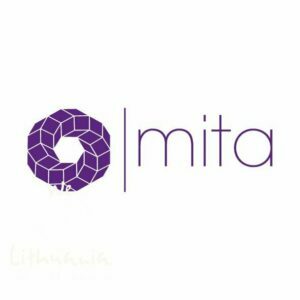Local tourism is experiencing a huge growth in popularity. More and more people are planning to spend their free time actively by travelling and visiting as many places as possible in Lithuania. In order to get to know the country, it is important to plan your route right down to the smallest detail, which can best be done by local ambassadors, the staff at tourist information centres.
A story heard live is always more real
Tourist information centre websites today are tailored to the needs of the traveller, with easily accessible information, suggested routes, interactive games and online shops. But the real tourist gateway to a city is the tourist information centre and the professionals who work there. The task of these people is not only to answer questions, but also to convey the spirit of the city to visitors in order to impress them. According to Romena Savickienė, the director of Klaipėda Tourism Information Centre: ‘The staff at the tourism information centre have only one goal, and that is to present the city or the district to visitors in such a way that they feel welcome here. We follow the principle that there can never be a negative answer, or no answer at all, to a question.’
So although the information on websites is constantly being updated and supplemented, it is more pleasant to hear it from a local tourism expert. A story heard straight from the mouth is always more real. The staff at the tourist information centre are often happy to suggest a visit to local folk artists, communities or public figures, who can offer various kinds of entertainment and special activities.
According to the member of staff at Utena Tourist Information Centre: ‘A live conversation is invaluable to a traveller. When visiting a tourist information centre, a person gets much more than just some verbal information and the opportunity to buy a leaflet and a souvenir. In a conversation, he learns about the area in the local dialect.’
Romena Savickienė, the director of Klaipėda Tourist Information Centre, agrees that the range of travellers’ questions is very wide; therefore, as real ambassadors for the region, the staff have to be very familiar with every corner of the city: from knowing where to get a car repaired, to information about the place in the city that offers the best views. It is said that we know about the world and each other through six people; to travel and get to know Lithuania through tourism centres and their employees is a great chance to make that knowledge deeper and richer.
Tourist centres: more than just a place to get a leaflet
When visiting somewhere, people have usually already purchased some service in the area (such as accommodation, spa treatment, etc), and they have already heard about places of interest to visit. Not surprisingly, in order to make the most of the time available, they often visit tourist centres, in the hope of picking up a few leaflets with some local information about places to visit. However, they also get much more than that. When a tourist information centre employee asks just a few extra questions, they can often plan a route that meets the needs of the visitor right down to the smallest detail, such as educational activities, nearby events, museums, and other forms of entertainment. That is often how people discover completely new places to enjoy. Daiva Kulienė, the director of Molėtai Tourist Information Centre, states: ‘The live word has miraculous power. A conversation can meet the needs of the tourist much better, because you see the emotions, feel the mood, and answer many more questions that might not have even come up when browsing a website … ‘
Travelling is a great way to spend your free time, both for the individual traveller and groups or families, but it is important to make sure that the route chosen meets everyone’s expectations. Of course, you can put together a travel plan or choose a journey yourself, but it is always worth trusting the detailed planning of a holiday route to a local tourism expert.


